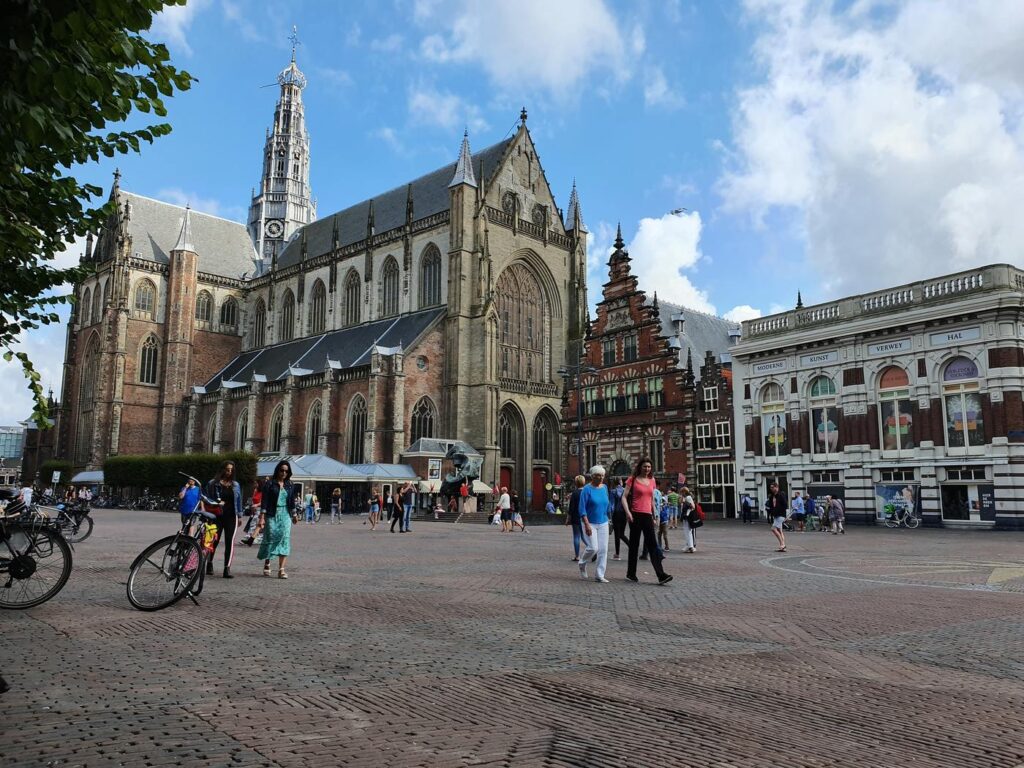Tracing your Dutch ancestors can be a rewarding journey, offering a glimpse into centuries of history. The key to uncovering your Dutch roots lies in a combination of vital records, passenger lists, church records, and genealogical resources. Start by gathering family records such as birth certificates, marriage certificates, and death records. These documents can provide vital clues about your ancestors’ origins and movements.
Next, explore Dutch genealogy websites and provincial archives, which hold a wealth of information on Dutch families. Civil registers, baptismal records, and burial registers often contain detailed personal data about your forebears. If your ancestors emigrated to North America or elsewhere, sources like ship passenger lists, immigration records, and local cemetery indexes can further assist in piecing together their story.
For those serious about tracing their Dutch ancestry, professional genealogists or services such as FamilySearch can be invaluable. Whether you’re looking for church registers or even colonial records from the 17th or 18th century, a thorough search can lead to exciting discoveries about your Dutch heritage.
Digging deeper into dutch genealogy
When it comes to tracing your Dutch ancestors, understanding where to look and which records to focus on can make all the difference. Dutch genealogy is rich with resources, and taking a strategic approach can help you uncover a detailed family history.
Start with civil registration and church records
In the Netherlands, civil registration records have been systematically collected since 1811. These vital records include birth, marriage, and death certificates, which can be found at provincial archives and online databases. Before 1811, church registers were the primary source of family information, containing baptisms, marriages, and burials. Many of these are now digitized and accessible through websites like FamilySearch or the Central Bureau for Genealogy (CBG).
The church was central to Dutch communities, making these records invaluable for tracing ancestors. You can often find your ancestors’ names, dates of birth, and even their occupations in these registers. Don’t forget to search for additional records, such as baptismal records, which may offer insights into godparents and extended family members.
Explore passenger lists and emigrant records
If your Dutch ancestors emigrated to North America, you’ll likely find valuable clues in passenger lists. These lists were commonly kept when Dutch families left for the New World, especially in the 19th and early 20th centuries. These records will typically include the names of passengers, their ages, occupations, and destinations. Archives in both the Netherlands and your ancestor’s destination country often house these records.
Many Dutch emigrants traveled through ports in Amsterdam or Rotterdam, which are major hubs for researching early Dutch immigration. Similarly, records from colonial areas like New York City or the Dutch Caribbean may provide further insights.
Utilize additional resources
Beyond traditional records, there are numerous tools that can provide context to your family’s story. Websites like the Dutch National Archives offer digitized census records, electoral registers, and land records that can be essential for tracing property ownership and family movements. Notarial records, detailing property transactions and wills, can also give you a deeper understanding of your ancestors’ lives.
In addition to these documents, burial records and cemetery indexes are vital resources for finding the final resting places of your ancestors. Many Dutch cemeteries, both in the Netherlands and abroad, maintain detailed lists of those buried within them, which can serve as confirmation of family connections.
Look for professional help and online tools
For those who want to dive deeper or encounter challenges along the way, enlisting the help of a professional genealogist can be incredibly helpful. Experts specializing in Dutch genealogy can navigate complex archives and translate old records. Alternatively, websites like FamilySearch, CBG, and Ancestry.com offer tools, webinars, and courses to help you enhance your research skills.
Exploring Dutch genealogy may take time, but with patience and the right resources, you’ll begin to piece together the story of your ancestors and their journey across generations.
Expanding your search for dutch ancestors
Tracing Dutch ancestors often leads to discovering a wealth of interconnected records, and there are several related resources and avenues that can enrich your research. By considering various types of historical documents and specialized databases, you can gain a deeper understanding of your Dutch heritage.
Immigration and emigration records
Many Dutch families emigrated to North America, the Caribbean, and even parts of Africa, leaving behind traces in immigration records. These records, such as passenger lists, customs declarations, and alien registers, can provide information on when and why your ancestors left the Netherlands. They can also reveal their final destinations, helping you understand migration patterns and connecting you to potential relatives who may have settled elsewhere.
Military and colonial records
If your ancestors served in the military or participated in colonial activities, military service records or colonial records might offer more insights. The Netherlands had a history of involvement in both European and overseas conflicts, and many Dutch individuals enlisted for service in the army. These records can include details such as rank, unit, and service dates, adding valuable context to your family history.
Notarial and probate records
Notarial records, especially those from the 17th and 18th centuries, are essential for understanding the legal and property dealings of your ancestors. These records often contain wills, inheritance documents, and land transactions. Probate records, which detail the distribution of an estate after someone’s death, can reveal family relationships, legacies, and the economic standing of your ancestors.
Local archives and cemetery records
If you’re searching for ancestors who lived in specific Dutch provinces, provincial archives are an invaluable resource. The records found in these archives can include everything from local censuses to electoral registers and even property deeds. Additionally, visiting local cemeteries or searching their digital indexes can help you locate the graves of your ancestors, sometimes linking individuals to family branches you weren’t aware of.
Dutch genealogy webinars and online communities
For more in-depth research, consider joining online genealogy forums or attending webinars focused on Dutch ancestry. Many professional genealogists, such as Yvette Hoitink, offer advice, courses, and resources for those researching Dutch genealogy. These platforms can provide useful tips on navigating Dutch records, as well as connecting you with others who share similar ancestral backgrounds.
By broadening your search to include immigration records, military service details, probate documents, and more, you can piece together a more comprehensive picture of your Dutch ancestry, uncovering fascinating stories from the past.









